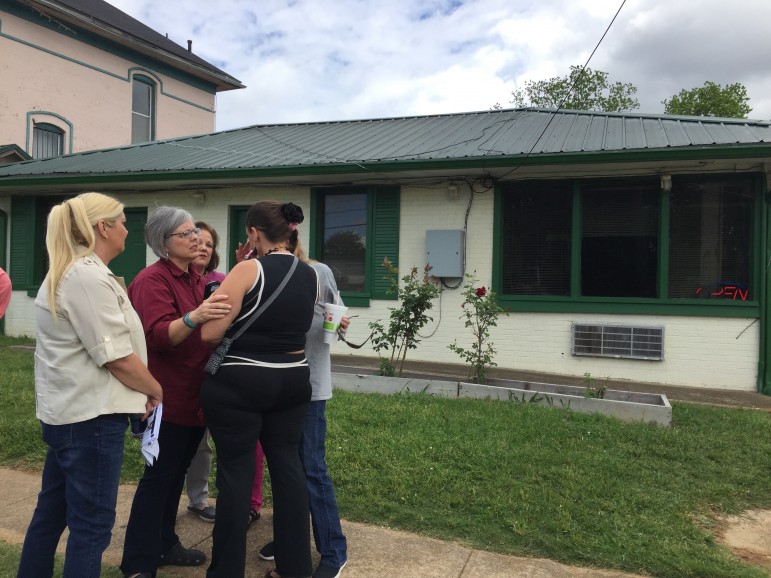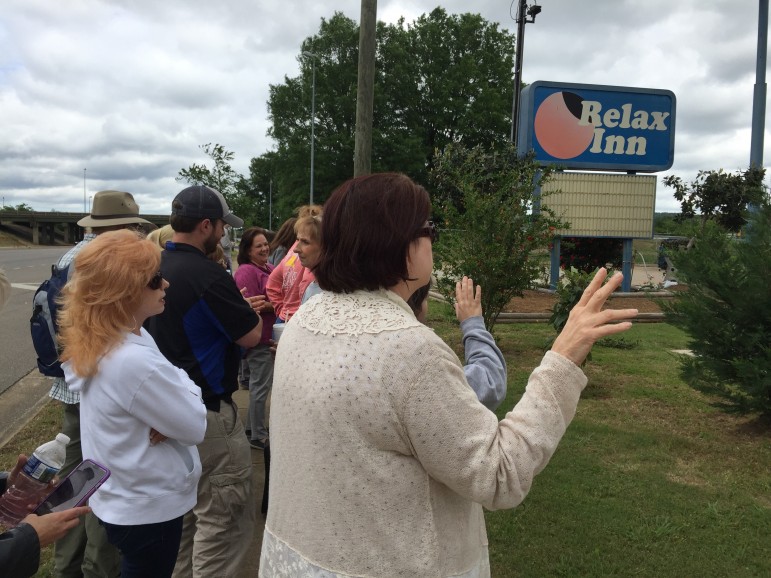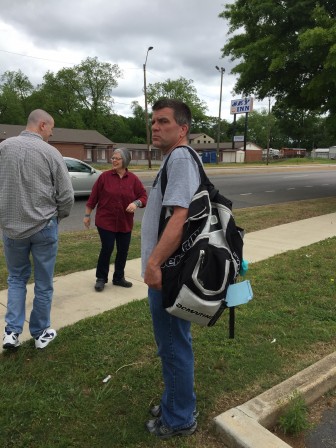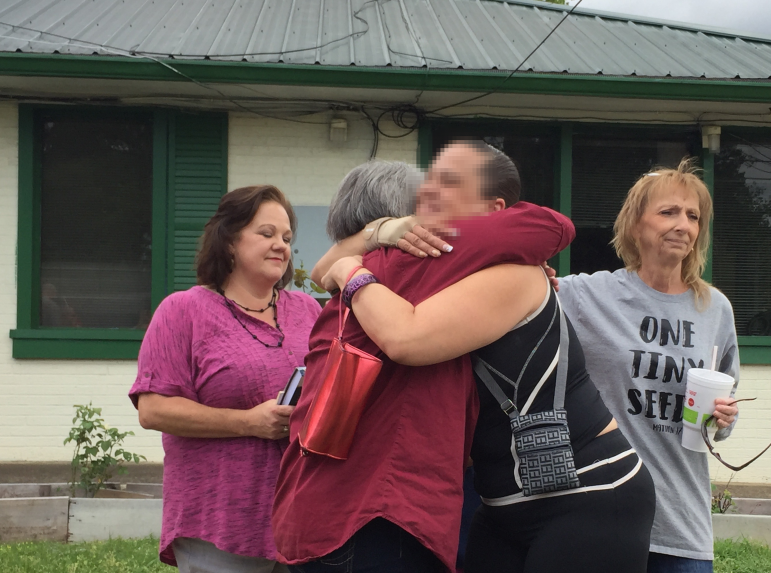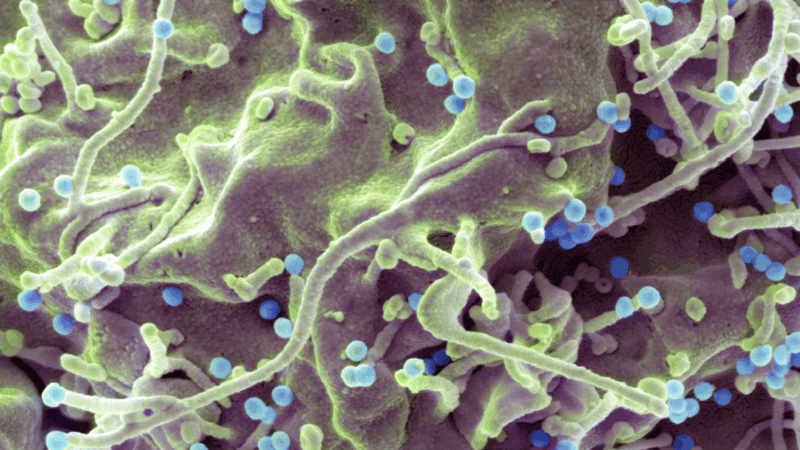Sex Trafficking in Alabama: The Crime & the Fight Against It
Two dozen volunteers walk down a main drag in Birmingham’s Woodlawn neighborhood. They’re within sight of I-20, which has come to be known as “the sex trafficking superhighway.” The group reaches a cluster of run-down motels where prostitutes work.
Soon, a young woman with a small bruise on her head comes out and asks everyone to move to where her pimp can’t see them. Once out of view, the volunteers hug her, and she starts crying. They tell her they want her to be safe, that she hadn’t “done anything to be beat on,” and that there are places that will help her leave that life. One of those places is The WellHouse, the shelter and rehabilitation facility for sexually exploited women that’s organizing this day’s outreach, which volunteers call “Special Ops.”
The goal is to give prostitutes the information and courage to leave sex trafficking behind. The volunteers carry pamphlets, fliers, Bibles, and concealable hygiene items with help-line numbers printed on them. Several of them know all too well what the victims face: Mary Elizabeth Minderhout says it happened to her.
“It starts out simple,” she says, adding that she grew up in an abusive situation. “It starts out as somebody telling you that you’re special and you’re loved, if you don’t have a family. And then, over time, it becomes abuse, and it becomes, you know, not just having sex with your boyfriend but their friends, and … and sooner or later, you’re trafficked. And you don’t even know it’s happening to you.”
People sometimes wonder why sex workers don’t just walk away. Every case is different, but pimps often threaten, beat, rape, or force addictive drugs on their workers. They steal documents that show who they are, taking away their identities not just emotionally but legally. They threaten their families, too. Lisa Roxanne, one of the original organizers of Special Ops, says women often continue in sex work because their pimps know where their children are.
And the trafficking rings are constantly on the move. Birmingham is on a circuit of interstates that help sex traffickers work a wide area without getting caught. They use technology too.
“The Internet has probably facilitated the explosion in the trafficking world,” says FBI Special Agent Cornelius Harris Jr. He and other experts say it’s impossible to know exactly how many victims are out there, but based on what Harris sees on the streets, he calls human trafficking in Alabama a significant problem.
“In any given operation,” he says, “we typically will run across anywhere from 10 to 30 potential victims of human trafficking, and that’s at one finite location that we’ve decided to target for an evening.”
Many of these victims are children. And advocates say they’re barely skimming the surface. They estimate just 2 to 4 percent of people ensnared in what they call “modern slavery” ever get rescued.
Even so, Harris says that when just one victim gets help, “we can really impact the way they view the rest of humanity. [They learn] there’s someone out there who can give them hope. And if we can take one trafficker off the street, there’s no telling how many other lives that we’ve impacted by not having that trafficker out there.”
In the last few years, law enforcement, state legislators, and nonprofits have ramped up cooperation to prosecute traffickers and rescue their victims. No one thinks the problem is going away. But neither are the people fighting it.
Here are possible signs of human trafficking.
You can access our three-part series on sex trafficking in Alabama here.
This quiet epic is the top-grossing Japanese live action film of all time
The Oscar-nominated Kokuho tells a compelling story about friendship, the weight of history and the torturous road to becoming a star in Japan's Kabuki theater.
The Live Nation trial could reshape the music industry. Here’s what you need to know
On Tuesday opening statements will begin for the federal antitrust trial against Live Nation, one of the largest entertainment companies in the world.
A new one-a-day-pill holds promise for HIV’s ‘forgotten population’
It's designed to take the place of complicated, multiple drug regimens that many people with HIV need to follow. And it's also beneficial because the HIV virus is always evolving.
For filmmaker Chloé Zhao, creative life was never linear
Director Chloé Zhao used meditation, somatic exercises and dance to inspire the cast and crew of this Oscar-nominated story about William Shakespeare's family.
10 new books in March offer mental vacations
March is always a big one for books – this year is no different. We call out a handful of upcoming titles for readers to put on their radars — offering a good alternative to doomscrolling.
Sen. Chris Coons, D-Del., talks about the war with Iran and upcoming war powers vote
NPR's A Martínez asks Delaware Democrat Chris Coons, a member of the Senate Foreign Affairs Committee, about the war with Iran.

